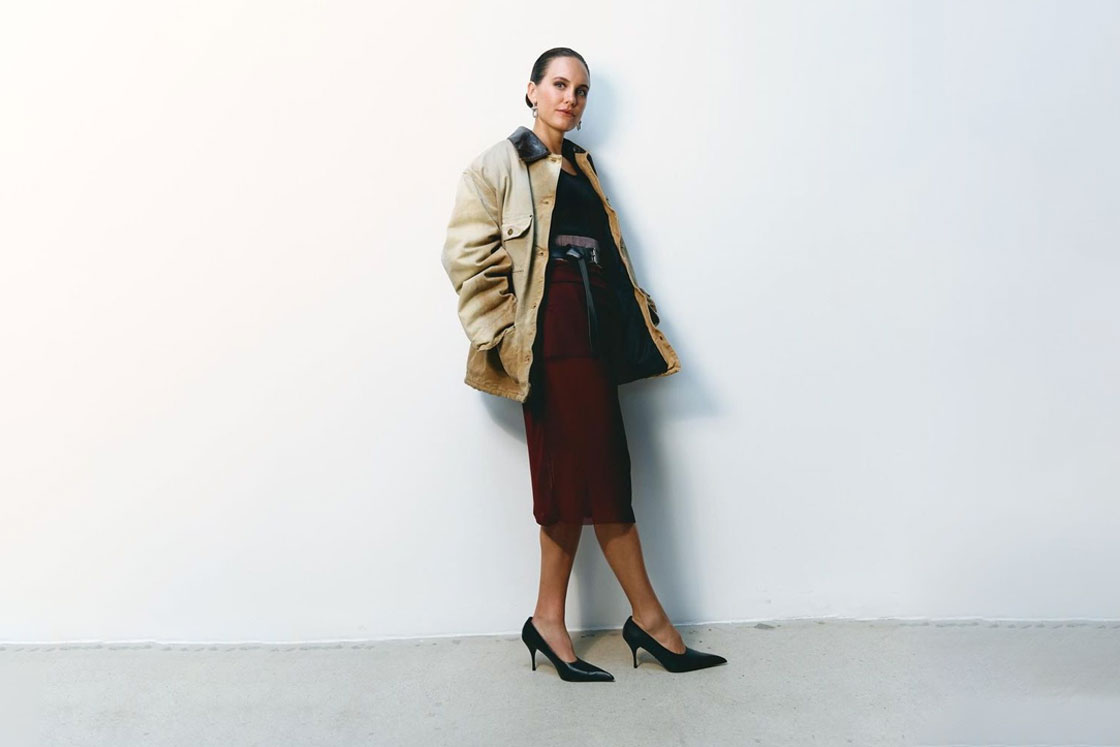While the SCOURGE of RACISM blighted Marlee Silva’s YOUNGER YEARS, sharing stories of her CULTURE and the STRONG WOMEN within it has been CATHARTIC – and composing IMPACTFUL WORKS and EMPOWERING others continues to drive her.
THREE HURDLES STOOD BETWEEN the young Marlee Silva and the effervescent Nine Network TV presence and storyteller she is today: shyness, racism and her own anger. Her mother cured the shyness when Silva was still a toddler by sending her to kindergarten drama classes, where Silva found that as soon as she was playing someone other than herself, the world seemed a safer place. Her confidence blossomed to the extent that by the end of her first year of school, rather than hiding, she was routinely addressing the assembly.
During her first job, mentoring Aboriginal schoolchildren, Silva, a Gamilaroi and Dunghutti woman who grew up in Sydney’s Sutherland Shire, again found herself gravitating towards public speaking – and fronting the media.
“I loved telling the stories of the young people that I was working with and seeing the influence those stories can have on the average person who has maybe never interacted with an Aboriginal kid before or has certain stereotypes in their head – or is just curious about what it’s like for Aboriginal kids growing up in Australia today,” she says.
The racism hurdle was more challenging. Because of her looks (her mother being white), Silva’s Aboriginality was questioned at school. Her solution was to arm herself with everything she could learn about her heritage.
“I was raised in a household where expressing my Aboriginality and being really proud of my culture was the norm,” she says. “At school, I was doing the Acknowledgement of Country in assemblies and things, and the more that was occurring, the more comments were made to me by my peers and teachers – in pretty awful racist terms, but also in genuine curiosity for my opinion and perspective.”
The racism seemed to fade once she was out in the wider world. “I was working in a majority Aboriginal space for the first couple of years,” she says, “and everything felt so hopeful, being in that bubble where you just thought that this stuff doesn’t happen.”
Then a university tutor told her that her poems sounded too intelligent to be the voice of an Aborigine. “That was pretty horrendous,” she recalls. “It’s like being sent crashing back to earth . . . Those little moments piled up within me for a long time, and I found myself very angry, and not knowing what to do with it. It took me a long time to figure out to let it go.”
Writing her first book, My Tidda, My Sister, in which she shares her own stories and those of other Aboriginal women, proved cathartic. In it, she observes, “In the face of adversity, the true leaders, and the ones I strive to be like, are those who emerge without bitterness, and have an insatiable desire to give back, and ensure nobody goes through what they have.”
Amid a work-related breakdown around the time of the book’s release, she made a resolution to jettison her own bitterness as part of rebuilding herself. Now, she says, she “walks through life feeling just a little bit lighter in my steps”.
Silva is optimistic that the devaluing of Aboriginal culture within the education system is diminishing, although she still hears of incidents like booing during an Acknowledgement of Country at her old school.
“But I feel far more confident in the generation coming,” she says, “because of their access to resources that are directly from Aboriginal voices.”
Before My Tidda, My Sister, she had gained a profile pioneering online platforms where Aboriginal women told their stories. Now she hosts a podcast, When We Grow Up, with her good friend, rugby league star Nicho Hynes.
“We speak to people from all different walks of life who are successful and get them to reflect on what their younger selves would think of where they’ve gotten to,” she says.
Silva’s first children’s book, For 60,000 Years, was published earlier this year, she is set to co-write another children’s book (together with Hynes), and has a contract for another. Meanwhile, public speaking fills any rare gaps in her time, which is mainly spent covering sport for the Nine Network, with a particular focus on the National Rugby League Women’s Premiership.
Her father is ex-rugby league star Rod Silva, and while she’s not sporty herself, she loves the sense of involvement the commentary work offers. “I get to live that fantasy I had as a kid to be an athlete in some way – but from the sidelines,” she says.
Silva was thrilled to witness the Matildas’ support in last year’s FIFA Women’s World Cup; to see female athletes being treated as equals. “They have such incredible, inspiring stories that can really uplift a generation,” she says, and thinks, just as importantly, “it proves to sponsors and investors that women’s sport can be profitable”.
In one of her book’s most poignant episodes, she’s mobbed by teenaged girls, one of whom tells Silva how important she’s been in her life. Silva writes that it was as if she’d just been approached by her 15-year-old self.
She expresses the pride she felt in hearing that the empowerment she’d championed every day was having an effect. “It’s interesting how life seems to work in cycles and those sorts of moments, and seeing those real-life, real-world impacts – essentially of telling stories – is what continues to drive me in my work today.”
There can’t be many better feelings than that.
WORDS BY – JOHN SHAND (HARPER’S BAZAAR)
PHOTOGRAPHED BY – DAPHNE NGUYEN
STYLED BY – KARLA CLARKE

